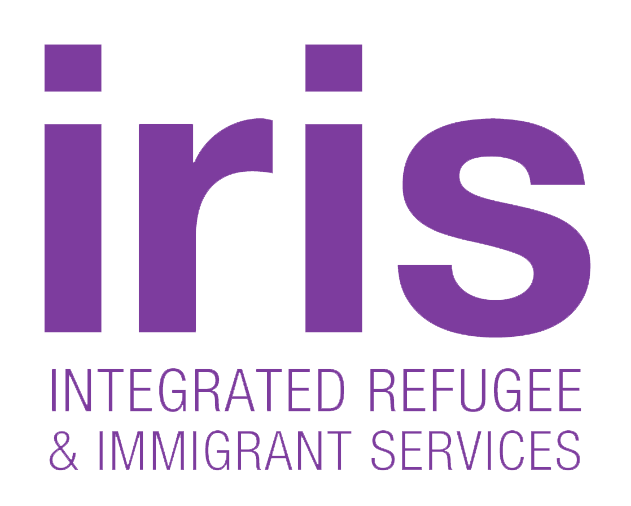Paiman’s Journey of Service and Resilience
Paiman passes me in the office and says, grinning, “Hey Kevin, when are you helping with my mortgage?”. It’s a running joke we have because Paiman was technically my client when I was a case manager from 2021-2023, but really he is a savvy, home-owning colleague, helping others tirelessly rather than requesting any help himself. While in case management in the throes of the Afghan evacuation, as we were fighting to keep our heads above water, he calmly asserted that he returned all calls the same day, as his personal policy. He had just joined IRIS when Kabul fell, was hired part-time but stayed late to ensure he learned the systems needed to serve an unprecedented influx of refugees.
He arrived in the United States in 2019, fortunate that during Trump 1.0 Special Immigrant Visa (SIV) holders were still permitted to trickle in. So, by the time Afghan evacuees began arriving in August 2021, he had the local knowledge – cultural and logistical – needed to be an effective guide for newly arriving compatriots. Whereas interpreting is an entry point for many immigrants entering work in the resettlement field, Paiman says that he always shied away from interpreting. Even in Kabul, where he grew up, that would have been an obvious foot in the door with the US military, yet Paiman found a different way in while studying English Literature at Kabul University. Studying with textbooks published by Yale and Washington State University, in a special program, he became curious about American life; so, when the US military and NATO came to his campus he seized the opportunity to volunteer.
Upon graduating, he successfully applied for a subcontract position, when the US military was pivoting to hiring Afghan personnel at bases to stave off a high rate of casualty among US servicemen. In this way, he began a career connected to the US military, where he quickly acquired management skills and then mastering database management, the latter paying off perfectly down the road when IRIS needed a new Training and Compliance Officer. A large part of his role as Training and Compliance Officer was to guide staff through the implementation of a new database for all client information – a massive shift in staff procedures that has improved the organization’s ability to track information, run reports, and analyze data. He’s since moved on to be the Monitoring and Evaluation Manager in IRIS’s new MEAL department. Back in Afghanistan, his career led to an array of experiences, such as being deployed to the Taliban-controlled West to assisting internally displaced people (IDP’s) and deportees arriving from Pakistan to blogging to, and uncovering instances of fraud, as an auditor. At one point, he even designed a book that was printed in both Dari and English. He only ever took off work for his engagement and wedding, and for a stretch worked two jobs so he could help a former employer resolve an outstanding problem related to an attempted staff crime that he blocked.
Being in a problem solver role in the workplace probably comes naturally to Paiman because, atypically for a middle child, he is the problem solver among his siblings (3 brothers, 2 sisters). He often gets advice-seeking calls from family, friends, and he’s the one to identify even small conflicts and find a solution. “I don’t trust myself, but they trust me,” he jokes. He becomes animated when talking about family, including when reminiscing about his courtship with his wife, Farah. In 2011, she was studying Psychology at Kabul University while he was pursuing English Literature, and they met in the neutral territory of an IT class. They bonded while studying for the TOEFL exam together. He made an attempt at a marriage proposal, and it succeeded; and they had their first son, Iman, together before leaving the country. They now have a newborn son, Asher.
When Paiman thinks of Kabul, he thinks fondly of his college years when he would bike around the city and hike in the surrounding mountains with friends, safely walking around the city at 2 or 3am. He remembers the vivid, distinct seasons of Kabul. Mostly he thinks of friends lost. He left behind his tight knit group of childhood friends and started over socially. His description of youthful halcyon days in the capital are useful to hear because when we hear about Afghanistan stateside it’s almost entirely Taliban this and military operation that. To counterbalance the danger that Paiman experienced, for example when he was stationed in Taliban-controlled territory, there are plenty of fond memories of a cosmopolitan and welcoming city.
Paiman’s welcome to the US was a little bumpy, only because he wasn’t keen on the ceaseless rain of Tacoma, Washington, where the family first landed. Within two days, he declared they would pack up and head East; he had an uncle in Waterbury, Connecticut they could stay with for a short while until they found a place. As Paiman tells it, once he decides on something, he has no patience for waiting; he takes immediate action. And that’s how they came to be walk-in clients at IRIS. One experience that is common among refugees, SIV holders, and other displaced people is that of having to work difficult, low-paying jobs not related to their expertise when they first arrive. Paiman also worked as a carpet installer and remover for a while. Later, when COVID concerns set in, he began driving for Amazon Flex delivery. The disrupting force of the pandemic meant that it was some time before Paiman found his way to a job that matched his professional background, but in the meantime he was able to do some regional travel, naming Lake George in New York, as a favorite spot.
Paiman has a history of putting in overtime during hard times – from his troubleshooting for the US military to his helping hundreds of compatriots with bus orientations, getting benefits and getting hired at Amazon Flex – and now that the organization is navigating a new, in many ways mortifying, political environment, his work ethic is proving a boon to his workplace yet again.



